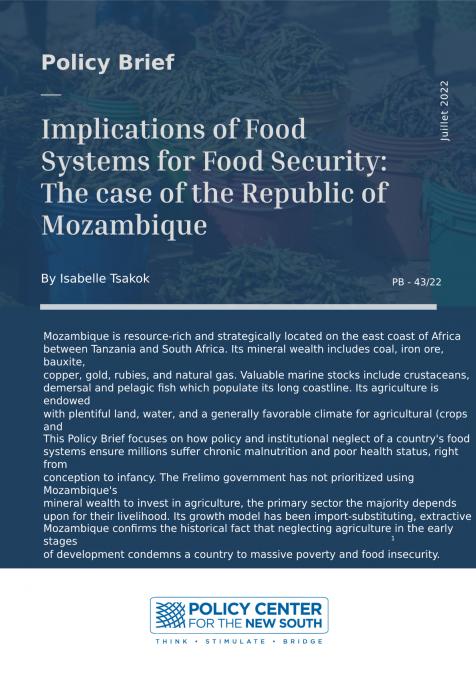Publications /
Policy Paper
L’agriculture africaine a connu dernièrement une croissance relativement élevée, quoique peu résiliente et tirée principalement par l’extensification. Malgré sa diversité, les niveaux de production restent insuffisants pour autonomiser le continent surtout pour ce qui est des produits alimentaires de base. En misant sur l’intégration, des marges de progrès se présentent aux pays africains pour améliorer l’écosystème de l’agriculture africaine et ses performances. Il s’agit de puiser dans le potentiel de transfert technique et technologique, de même que dans celui de l’exploitation des complémentarités commerciales, préalables à la sécurité alimentaire et au développement de chaines de valeurs intra continentales.











